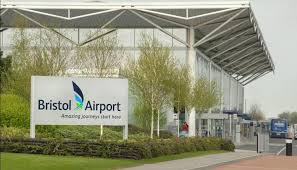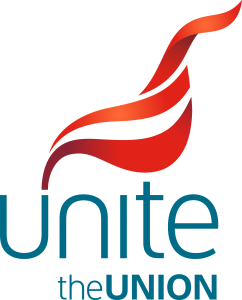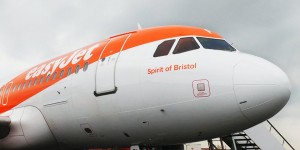The success of Bristol Airport as it prepares to come out of lockdown is vital to the region’s economy, with thousands of jobs hanging in the balance, according to research commissioned by the Unite trade union.
The airport expects to resume some domestic flights next month after spending the lockdown putting in social distancing measures. 
Over the past month just one service has continued – a daily Ryanair flight to and from Dublin – in marked contrast to the 130-plus destinations usually served by the airport.
However, its largest airline easyJet – which accounts for more than half all its flight – is to bring back services to a number of UK destinations from June 15.
European flights may follow afterwards depending on agreements between national governments to open so-called ‘air bridges’ between countries.
The Unite research, published today as part of a national campaign by the union, aims to show how crucial the airport is to the West of England’s economy.
It generates £1.3bn a year and supports work for around 15,000 people – 3,500 employed onsite by more than 50 companies and the remainder in jobs reliant on the airport.
The union is using the research to back up its warning that without urgent action by central government to stabilise the aviation sector, jobs dependent on Bristol Airport – including crew, ground staff, engineers and associated retail, transport and other roles – will be swept away.
It wants ministers to intervene in the sector to protect jobs through loans. However, the union says these would have strings attached in areas such as executive pay and corporate governance and would require airports and airlines to adhere to strict environmental standards to radically improve their carbon footprints. 
Unite regional officer Tim Morris said: “Airports are hives of economic activity. Bristol Airport pumps £1.3bn into the economy, supporting the jobs and livelihoods of scores of workers, from air crew to taxi drivers to shop staff.
“If these jobs go then a huge economic hole will open up in the Bristol area and it could take decades to recover.
“Overnight, airports were effectively shut down by the government to protect the public’s health, but we are now pleading with ministers to protect our area’s long-term economic security.
“We are not asking for a giveaway but for loans that will be repaid when the sector is back on its feet, and we have support for this from across the political spectrum.
“But the clock is ticking. It is more than two months since the chancellor promised that a support package would be forthcoming for aviation, however he has yet to deliver. The communities that rely on Bristol airport for jobs and their prosperity cannot wait much longer.”
Unite is calling on everyone whose work is connected to the airport or who is concerned about its future to email their MP and call for support for the aviation sector.
Unite’s research shows that in the Bristol-Bath area the airport supports 5,850 jobs and contributes £675m to the economy, taking into account its impact on tourism and productivity.
Bristol is the ninth busiest airport in the UK and England’s third largest regional airport. However, plans to increase its capacity to handle 12m passengers a year – up from the 10m restriction in its current planning permission, which the airport is expected to reach next year – were rejected by North Somerset councillors earlier this year.
The airport’s owners Ontario Teachers’ Pension Plan had claimed the plans would have generated an extra £1.4bn for the regional economy over 10 years and create 800 jobs on-site and a further 5,000 around the region.
Unite’s campaign has been launched just days after low-cost airline easyJet – which employs nearly 700 people at the airport, including cockpit crew and cabin crew – announced it is to axe up to a third of its 15,000-strong worldwide workforce.
It is also selling or withdrawing from service 41 of its 343 aircraft – 17 of which are based at Bristol, its largest base outside of the South East. 
EasyJet serves 72 destinations from Bristol – more than half the airport’s total – and operates around 770 flights a week in the peak summer period.
The airline will also operate fewer flights and fewer routes and is in talks with airports about cutting costs.
It said it intends to retain its “leadership position in primary airports” such as London Gatwick but has given “no guarantees” it will not withdraw from other bases.
Out of its UK workforce of 8,000, some 7,000 are furloughed under the government’s job retention scheme.
By next year the airline expects to be flying 302 planes – 51 fewer than previously expected as it delays new aircraft deliveries and returns leased aircraft. It does not expect demand to fully recover until 2023.
EasyJet’s budget rival Ryanair is to resume flights from 19 UK airports, including Bristol, on July 1. The airline flies to more than 40 destinations from Bristol – although it is not clear how many will be reintroduced from July.
Britain’s biggest tour operator Tui, which also flies from Bristol – including to the Caribbean for cruise holidays – has cancelled all its foreign holidays until July 1.














